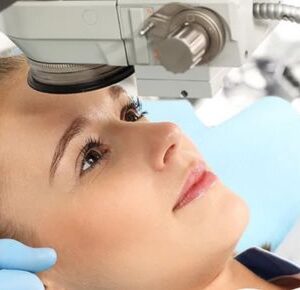Maintaining strong and white teeth is essential for a confident smile and good oral health. With the right care and habits, you can achieve and preserve a bright, healthy smile. These tips will help you maintain strong, white teeth for years to come.

1.Brush Twice Daily
Brushing your teeth twice a day, in the morning and before bed, helps remove plaque, bacteria, and food particles, preventing tooth decay and gum disease.
2.Use Fluoride Toothpaste
Choose a toothpaste containing fluoride, a mineral that strengthens tooth enamel and helps prevent cavities. Brushing with fluoride toothpaste twice daily supports dental health and enamel remineralization.
3.Floss Daily
Flossing once a day removes plaque and debris from between teeth and along the gumline, where toothbrushes can’t reach. Flossing helps prevent cavities, gum disease, and bad breath.
4.Limit Sugary Foods and Drinks
Reduce consumption of sugary foods and beverages, such as candies, sodas, and desserts, which contribute to tooth decay and enamel erosion. Opt for water or unsweetened beverages instead.
5.Eat a Balanced Diet
Maintain a balanced diet rich in fruits, vegetables, lean proteins, and whole grains to support overall health and dental wellness. Nutrient-rich foods promote strong teeth and gums.
6.Avoid Tobacco Products
Avoid using tobacco products, including cigarettes, cigars, and chewing tobacco, which stain teeth, contribute to gum disease, and increase the risk of oral cancer.
7.Rinse with Mouthwash
Use an antibacterial mouthwash to rinse your mouth after brushing and flossing. Mouthwash helps kill bacteria, freshen breath, and protect against gum disease.
8.Chew Sugar-Free Gum
Chewing sugar-free gum stimulates saliva production, which helps neutralize acids, remineralize enamel, and wash away food particles, reducing the risk of cavities.
9.Drink Water Throughout the Day
Drink plenty of water throughout the day to stay hydrated and rinse away food debris and bacteria from your teeth and gums. Water is essential for saliva production and oral health.
10.Avoid Staining Foods and Beverages
Limit consumption of staining foods and beverages, such as coffee, tea, red wine, and berries, which can discolor teeth over time. Rinse your mouth with water after consuming staining foods or drinks.
11.Use a Straw for Sugary or Acidic Beverages
When drinking sugary or acidic beverages, use a straw to minimize contact with your teeth and reduce the risk of enamel erosion and tooth decay.
12.Visit Your Dentist Regularly
Schedule regular dental check-ups and cleanings every six months to maintain optimal oral health. Your dentist can detect and treat dental issues early, preventing complications and preserving your smile.
13.Consider Professional Teeth Whitening
Consult your dentist about professional teeth whitening options to remove stubborn stains and discoloration and achieve a brighter, whiter smile.
14.Use a Soft-Bristled Toothbrush
Choose a soft-bristled toothbrush to brush your teeth gently without causing damage to the enamel or irritating the gums. Replace your toothbrush every three to four months or sooner if the bristles become worn.
15.Practice Proper Brushing Technique
Brush your teeth using gentle, circular motions, and be sure to brush all tooth surfaces, including the front, back, and chewing surfaces. Spend at least two minutes brushing to ensure thorough cleaning.
16.Don’t Brush Too Hard
Avoid brushing too aggressively, as it can wear down tooth enamel and irritate the gums, leading to sensitivity and gum recession. Brush with a light hand to protect your teeth and gums.
17.Use a Tongue Scraper
Incorporate tongue scraping into your oral hygiene routine to remove bacteria, food debris, and dead cells from the surface of your tongue, reducing bad breath and promoting oral freshness.
18.Consider Dental Sealants
Ask your dentist about dental sealants, a thin protective coating applied to the chewing surfaces of molars to prevent cavities and decay in hard-to-reach areas.
19.Practice Good Oral Hygiene Habits
In addition to brushing and flossing, practice good oral hygiene habits, such as cleaning your tongue, using interdental brushes or water flossers, and avoiding excessive teeth grinding or clenching.
20.Be Mindful of Teeth Grinding
If you grind or clench your teeth, especially at night, talk to your dentist about wearing a mouthguard to protect your teeth from wear and prevent jaw pain and headaches.
21.Avoid Using Teeth as Tools
Refrain from using your teeth to open packages, tear tags, or bite into hard objects, as it can chip or crack your teeth and damage dental restorations.
22.Address Dental Issues Promptly
If you experience dental pain, sensitivity, or other oral health issues, don’t ignore them. See your dentist promptly to address any concerns and prevent further damage or complications.
23.Maintain a Positive Attitude
Maintain a positive attitude toward dental care and oral hygiene, viewing it as an essential aspect of overall health and well-being. A positive mindset encourages consistent dental habits and promotes long-term dental health.
24.Set a Good Example
Lead by example and encourage your family members, especially children, to prioritize dental health and adopt good oral hygiene habits. By setting a good example, you promote a lifetime of healthy smiles for yourself and your loved ones.






